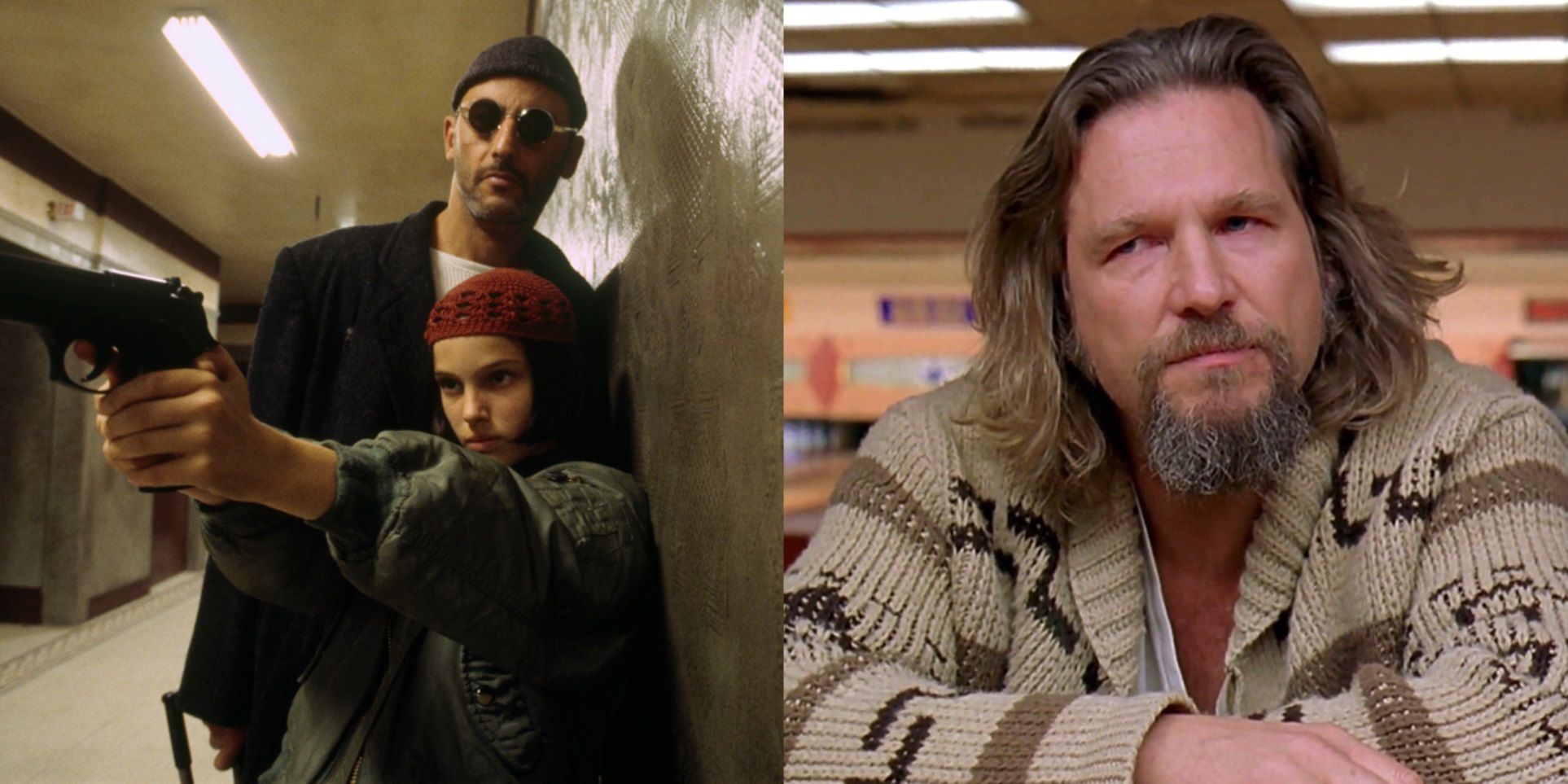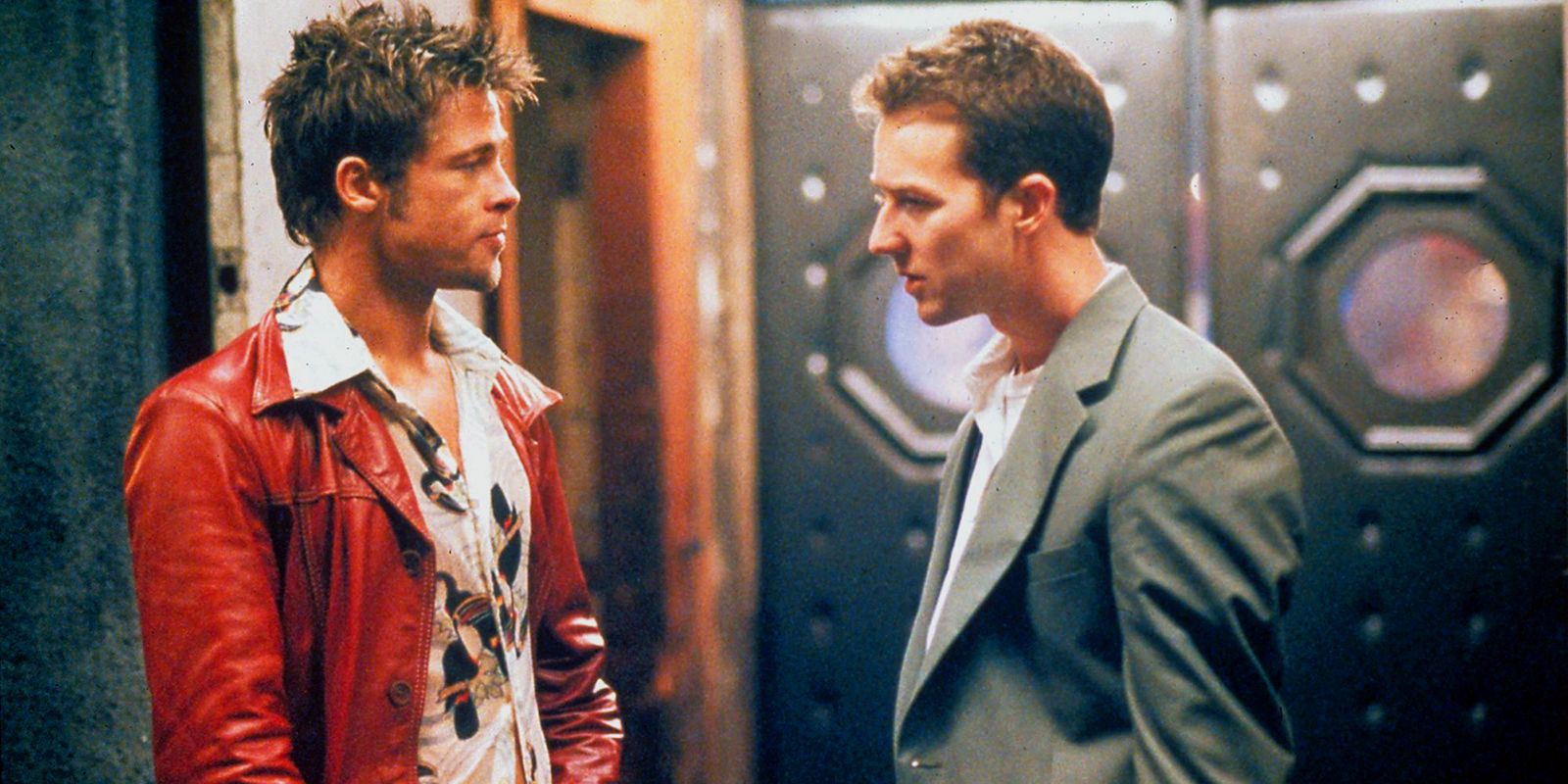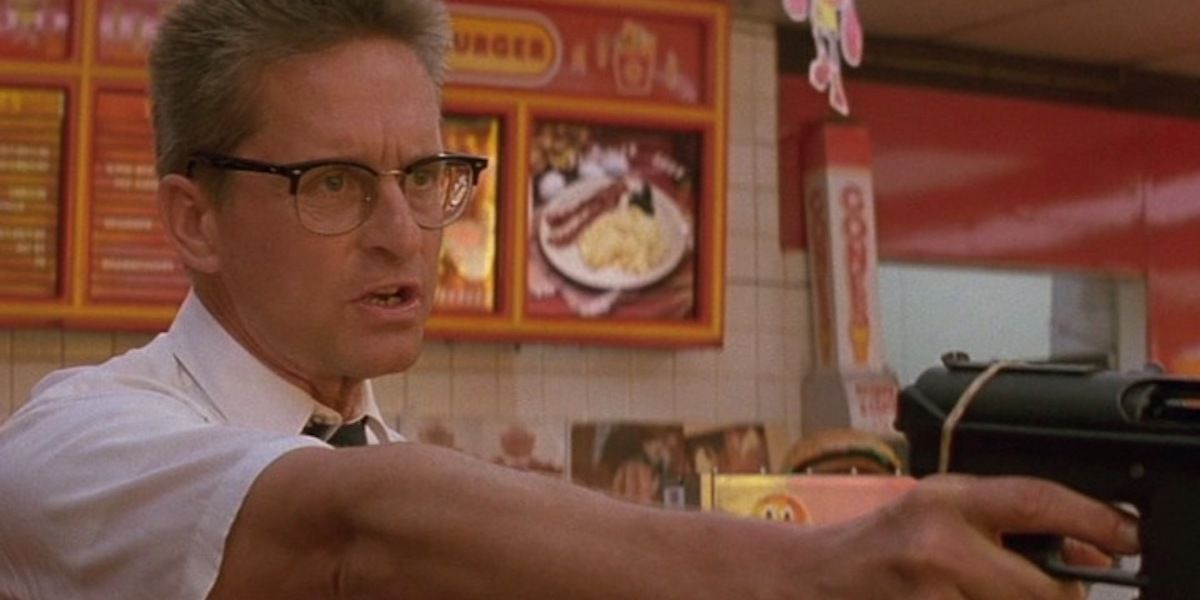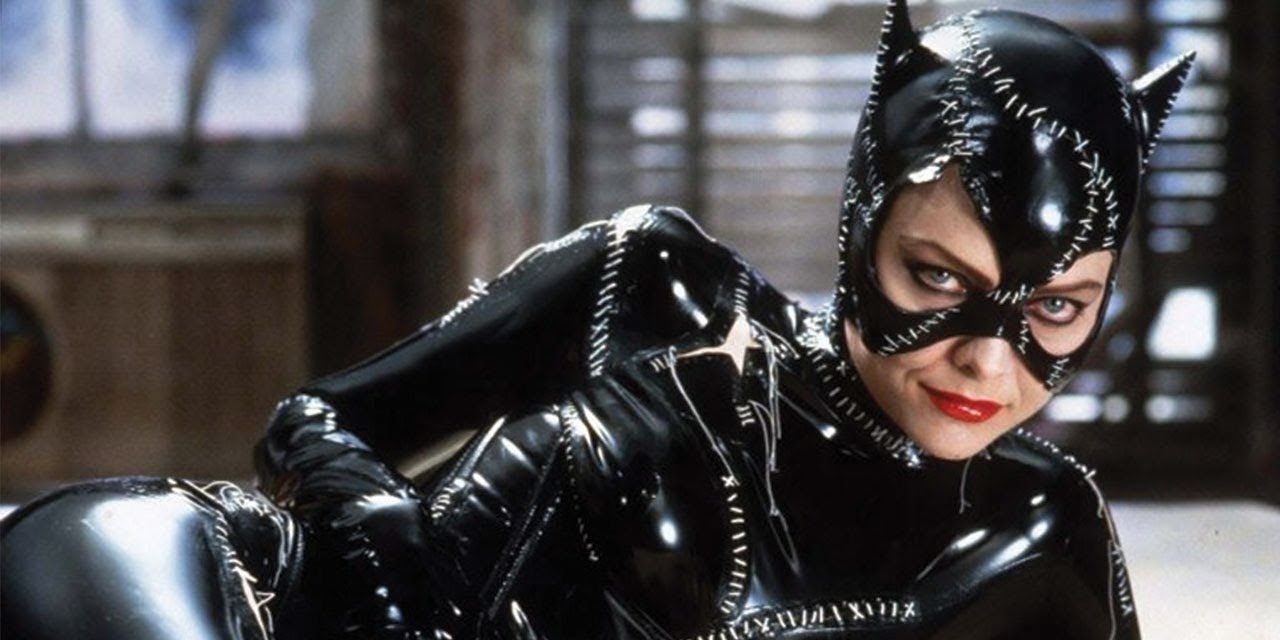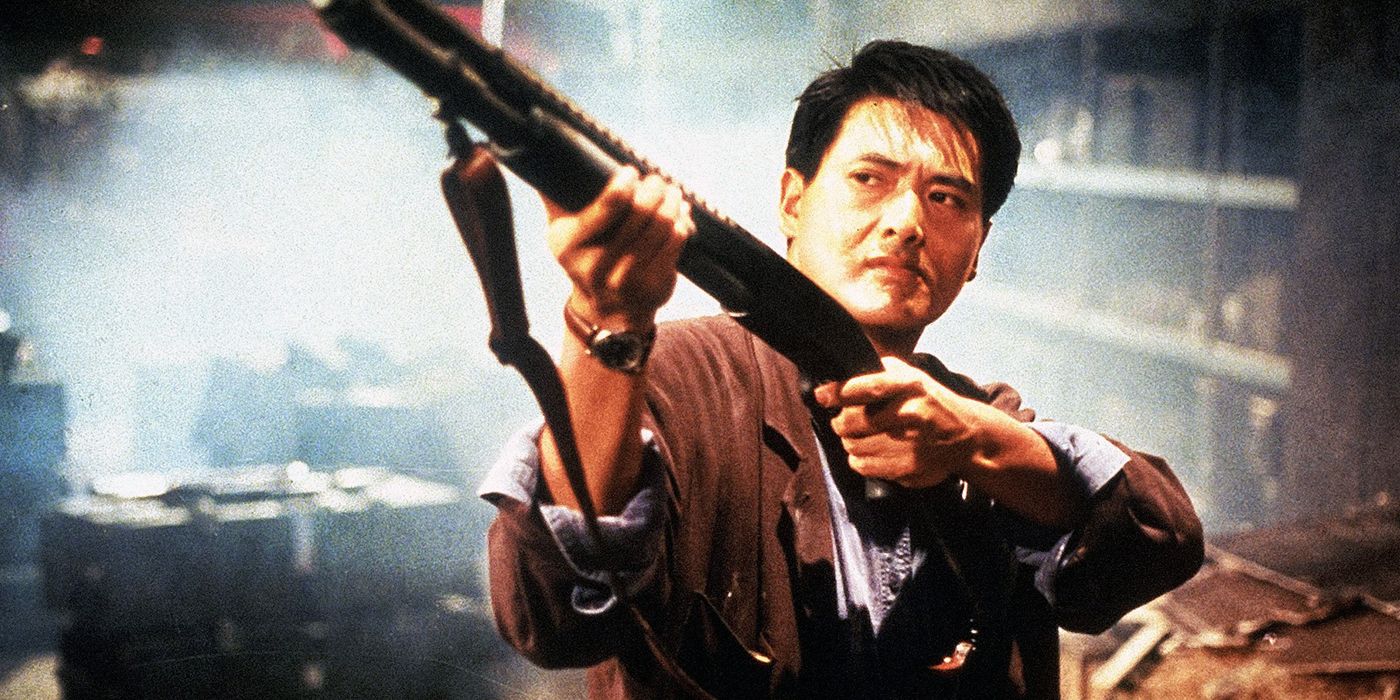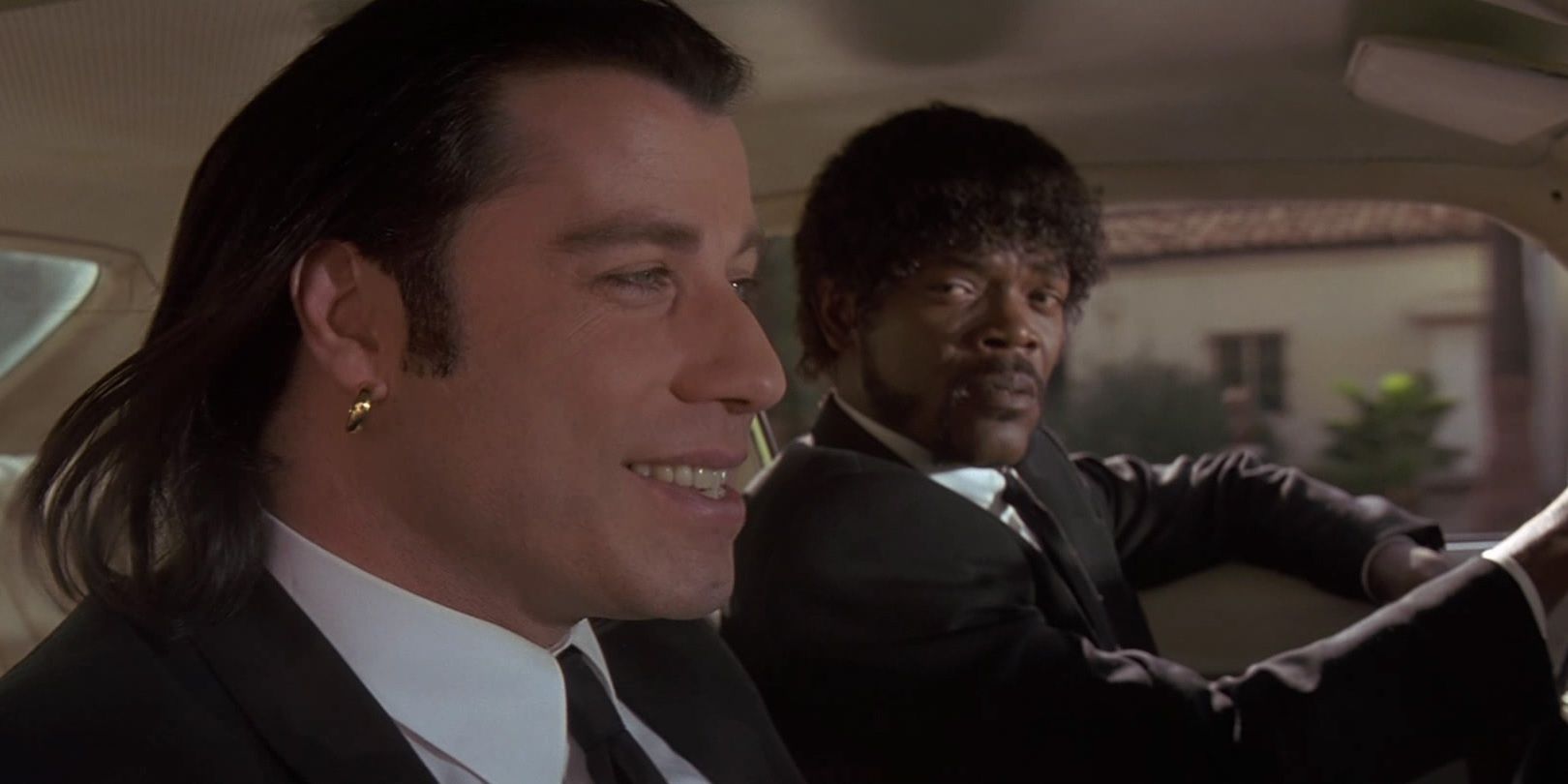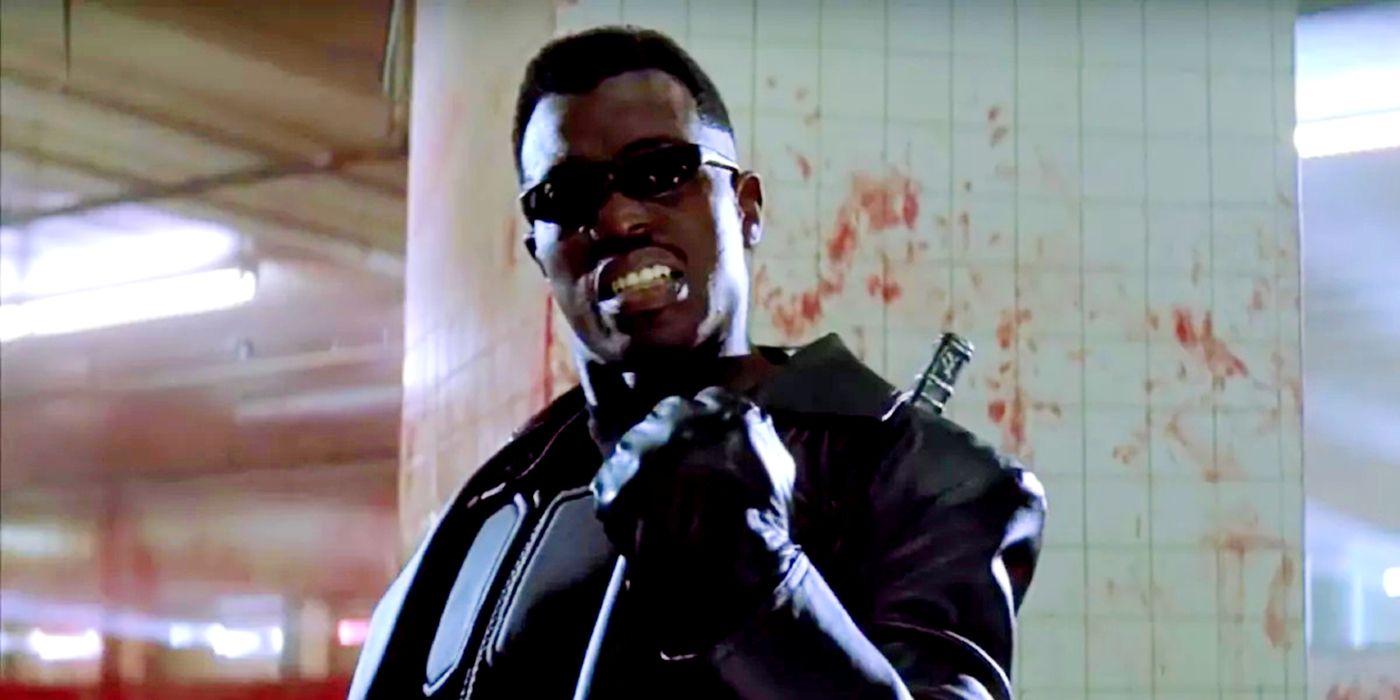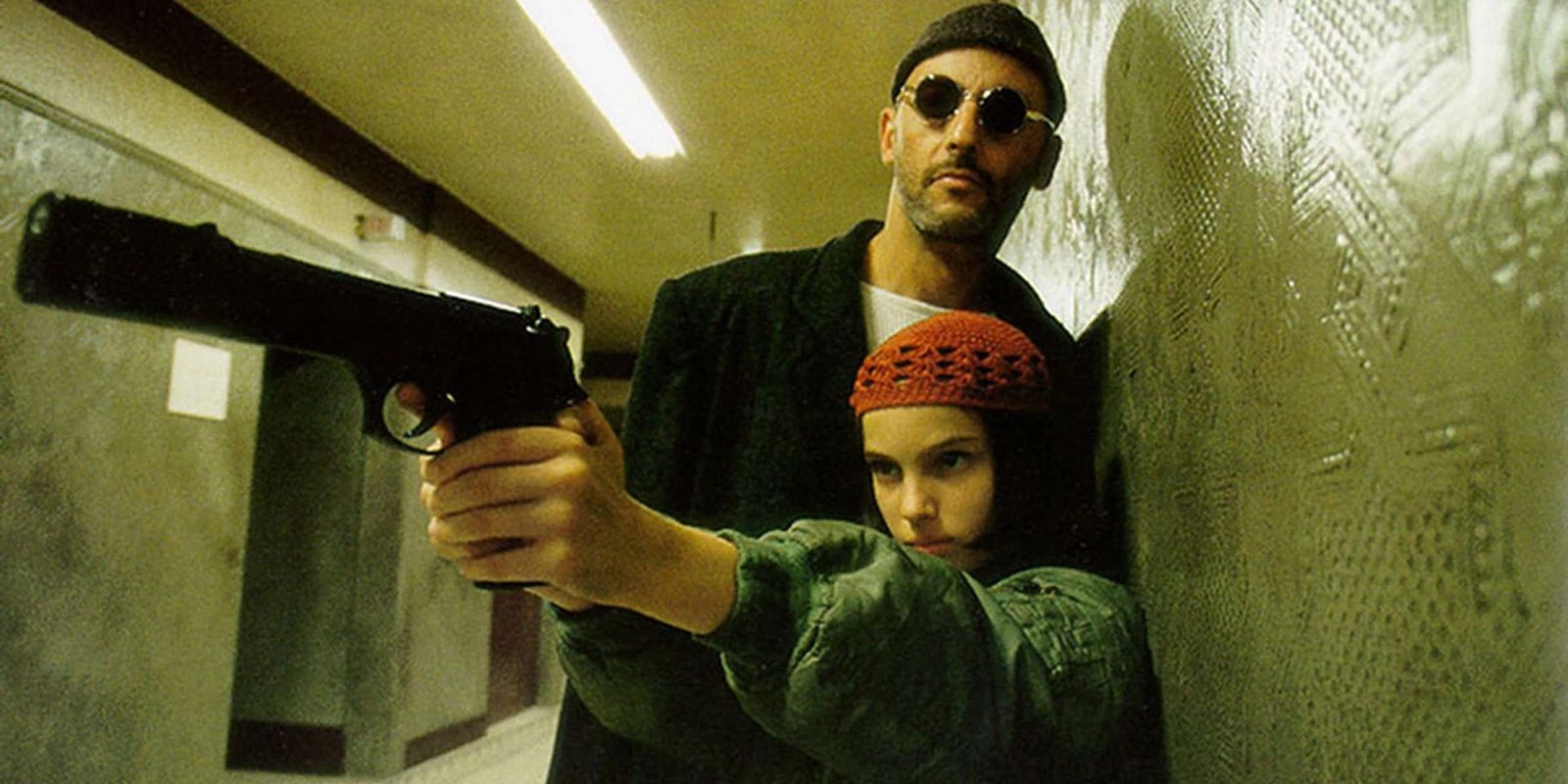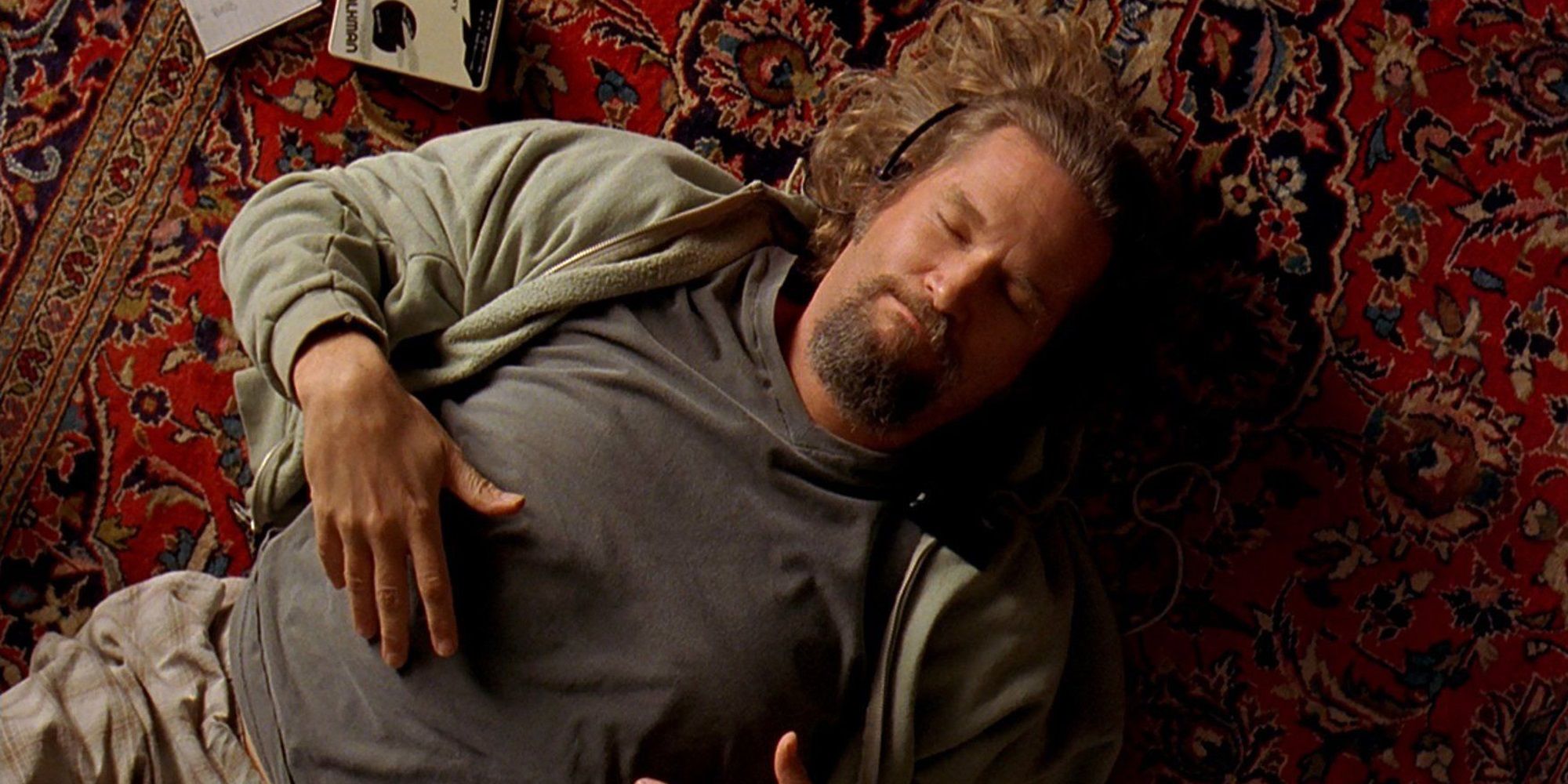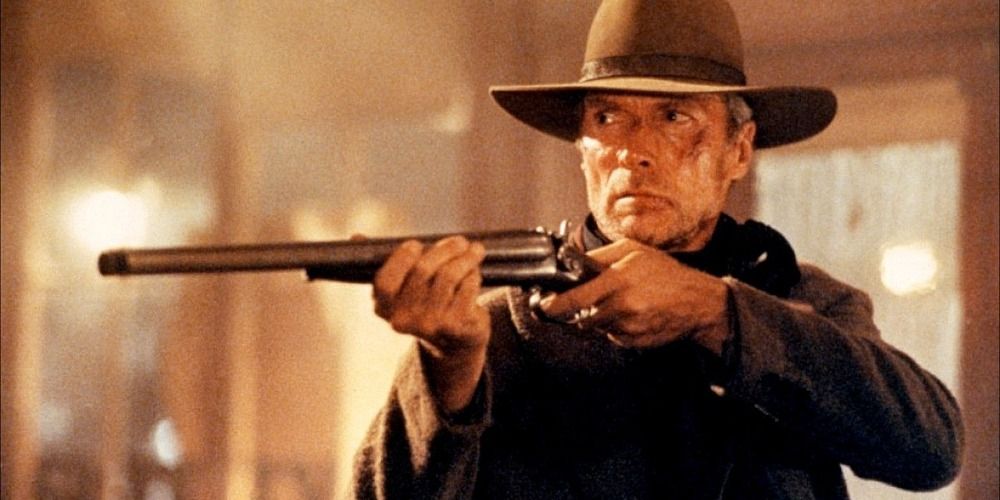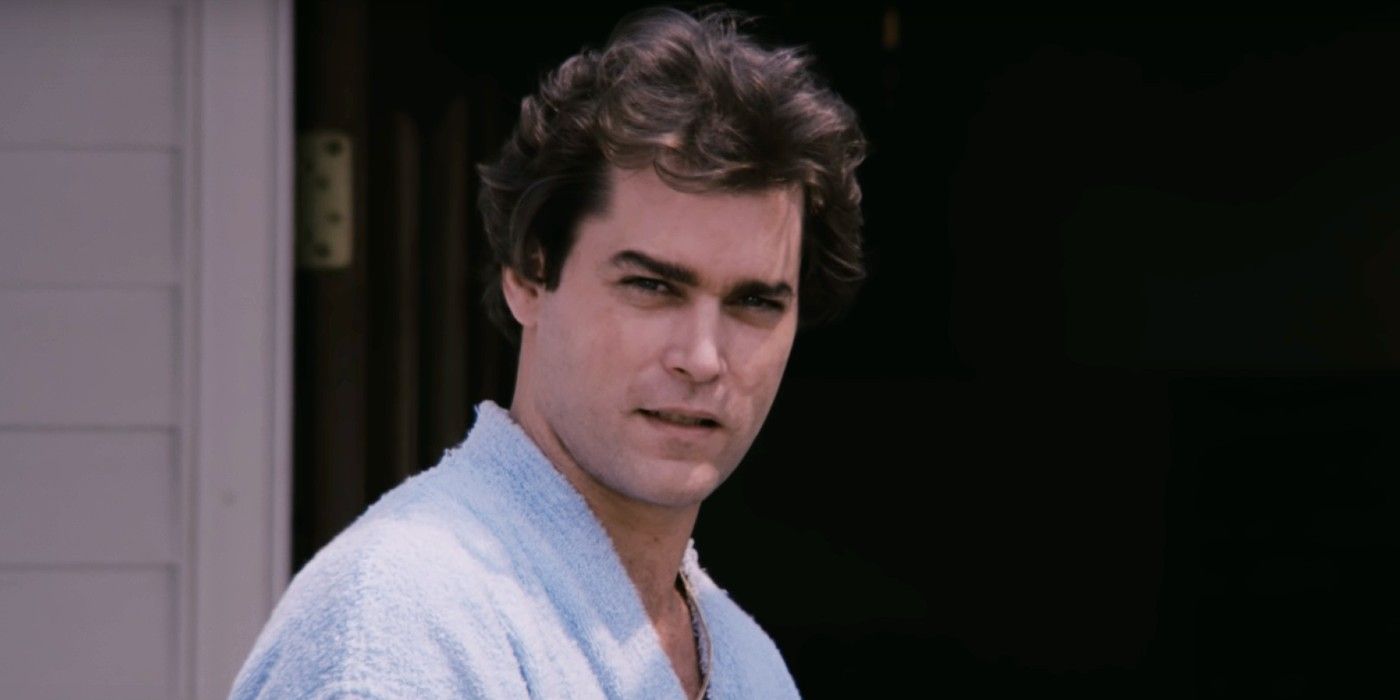After the sappy, sentimental films of the 1980s, the 1990s took a dark turn with twisty psychological thrillers like Primal Fear and Fight Club and cynical pitch-black comedies like Falling Down and Office Space. These refreshingly edgy movies captivated audiences who were sick of the same conventional stories of heroes defeating villains.
The subversive cinema of the ‘90s brought such compelling antiheroes as gunslinger William Munny from Unforgiven, mafioso Henry Hill from Goodfellas, comic book femme fatale Catwoman from Batman Returns, and avid bowler “The Dude” from The Big Lebowski.
The Narrator / Tyler Durden (Fight Club)
David Fincher’s adaptation of Chuck Palahniuk’s Fight Club ended up being just as controversial as the source material, because despite working on a big budget for a major studio, Fincher didn’t tone down the novel’s pitch-black humor or anarchist themes.
Edward Norton and Brad Pitt star as the Narrator and Tyler Durden, respectively. They’re two sides of the same coin – a bored, frustrated, lonely office drone and a confident, charismatic cult leader – who turn out to be (spoiler alert!) the same person.
Bill “D-Fens” Foster (Falling Down)
Joel Schumacher’s hilarious thriller Falling Down stars Michael Douglas as a bored commuter stuck in traffic on the hottest day in the history of Los Angeles. Bill Foster decides to just get out of his car and go for a wander. He ends up arming himself and going on a gun-toting crusade for basic human decency.
The movie is filled with darkly comedic rants about relatable frustrations like fast food products that pale in comparison to the pictures on the menu. Douglas nails the fury of these monologues, making Foster easy to root for despite his obvious flaws.
Catwoman (Batman Returns)
Tim Burton followed up Jack Nicholson’s unforgettable turn as the Joker in his original Batman movie with two spot-on portrayals of iconic DC villains – the Penguin and Catwoman – in Batman Returns.
Michelle Pfeiffer plays Selina Kyle as a classic femme fatale. She walks the fine line between hero and villain as she switches allegiance between Batman and the Penguin.
Tequila Yuen (Hard Boiled)
After glamorizing gangsters, John Woo balanced the scales with a movie that glamorizes cops. Hard Boiled stars Chow Yun-fat as Tequila Yuen, an inspector with the Hong Kong Police Force.
Tequila gleefully bends the law throughout the film, and he’s particularly adept at “gun fu,” the signature style of flashy action-packed spectacle found in Woo’s filmography.
Jules & Vincent (Pulp Fiction)
Quentin Tarantino’s sophomore feature Pulp Fiction builds on the Reservoir Dogs trope of grounding genre characters in a relatable reality with pop culture references through the roles of Jules and Vincent – played hysterically by Samuel L. Jackson and John Travolta, respectively.
On their way to carry out gruesome mob hits, Jules and Vincent discuss everything from European McDonald’s products to the TV pilot business model to the loopholes in Dutch cannabis laws.
Blade (Blade)
Stephen Norrington’s Blade was the first Marvel Comics blockbuster, predating even X-Men and Spider-Man. Marvel’s vampire slayer wasn’t particularly interesting in the comics before Wesley Snipes made him iconic in the movie adaptation.
Snipes defined all the best traits that the character has become famous for – particularly his quippy one-liners (many of which were improvised by Snipes himself).
Léon (Léon: The Professional)
Luc Besson’s Léon: The Professional is an action movie classic that helped to lay the groundwork for the current hitman thriller trend. Léon was John Wick before there was John Wick. Played brilliantly by Jean Reno, he’s a loner who gets paid to kill people.
Léon emerges as a sympathetic protagonist when he becomes a father figure. He takes an orphaned 12-year-old protégé, played by a young Natalie Portman, under his wing and teaches her the trade of killing.
Jeff “The Dude” Lebowski (The Big Lebowski)
The Coen brothers’ stoner noir The Big Lebowski unwittingly spawned a religious cult following with its abiding antihero Jeff “The Dude” Lebowski, played by Jeff Bridges. The Dude isn’t a typical antihero like Travis Bickle or Michael Corleone.
Unlike Philip Marlowe or Sam Spade, his motivation is simply to get high and go bowling. The noir-ish case of mistaken identity just gets in the way of getting high and going bowling. All the external conflicts in the movie are out of the Dude’s hands; he wants nothing to do with the central kidnapping plot. The Dude is a quintessential example of a passive protagonist.
William Munny (Unforgiven)
Clint Eastwood directed one of his own finest performances in Unforgiven, his final western, as an ex-gunslinger who’s called back into action to defend a sex worker’s honor. William Munny is happily running a pig farm with his kids when he’s given one last bounty.
Unforgiven explores Shane’s familiar theme of the inability to outrun a violent past. Munny is beautifully characterized as an older, more remorseful take on Eastwood’s iconic “Man with No Name” antihero from the Dollars trilogy.
Henry Hill (Goodfellas)
Martin Scorsese’s Goodfellas has been hailed as one of the greatest movies ever made. Amidst the dazzling cinematic spectacle of the rapid-paced opus, Ray Liotta gives the performance of a lifetime as real-life mobster Henry Hill as he rises to the top and falls from grace.
Henry’s crucial internal conflict is that he wants the glitz and glamor of mob life but isn’t prepared for the dirty work. He can’t stomach corpse disposal, he gets high on his own supply, and when he’s ultimately caught by the feds, he cracks under pressure.

